When it comes Chinese cinema most of us are probably familiar with the weapon-wielding, tree-prancing characters carving up Zhang Yimou’s colourful palettes, or the practically mute, chain-smoking, oh-so-stylish leads looming in the corners Wong Kar Wai’s silver screen. But, much as we love them, there’s more to Chinese cinema than wuxia and ‘70s Hong Kong romances. There’s Feng Xiaogang. The BFI has just dedicated a whole season to the man behind The Banquet - an epic and gorgeous adaptation of Hamlet – and war epic Back To 1942. So when Empire was invited to speak with Feng about his BFI retrospective, we interrupted the director’s afternoon cigarette to bring you the five reasons why he should be on your radar…
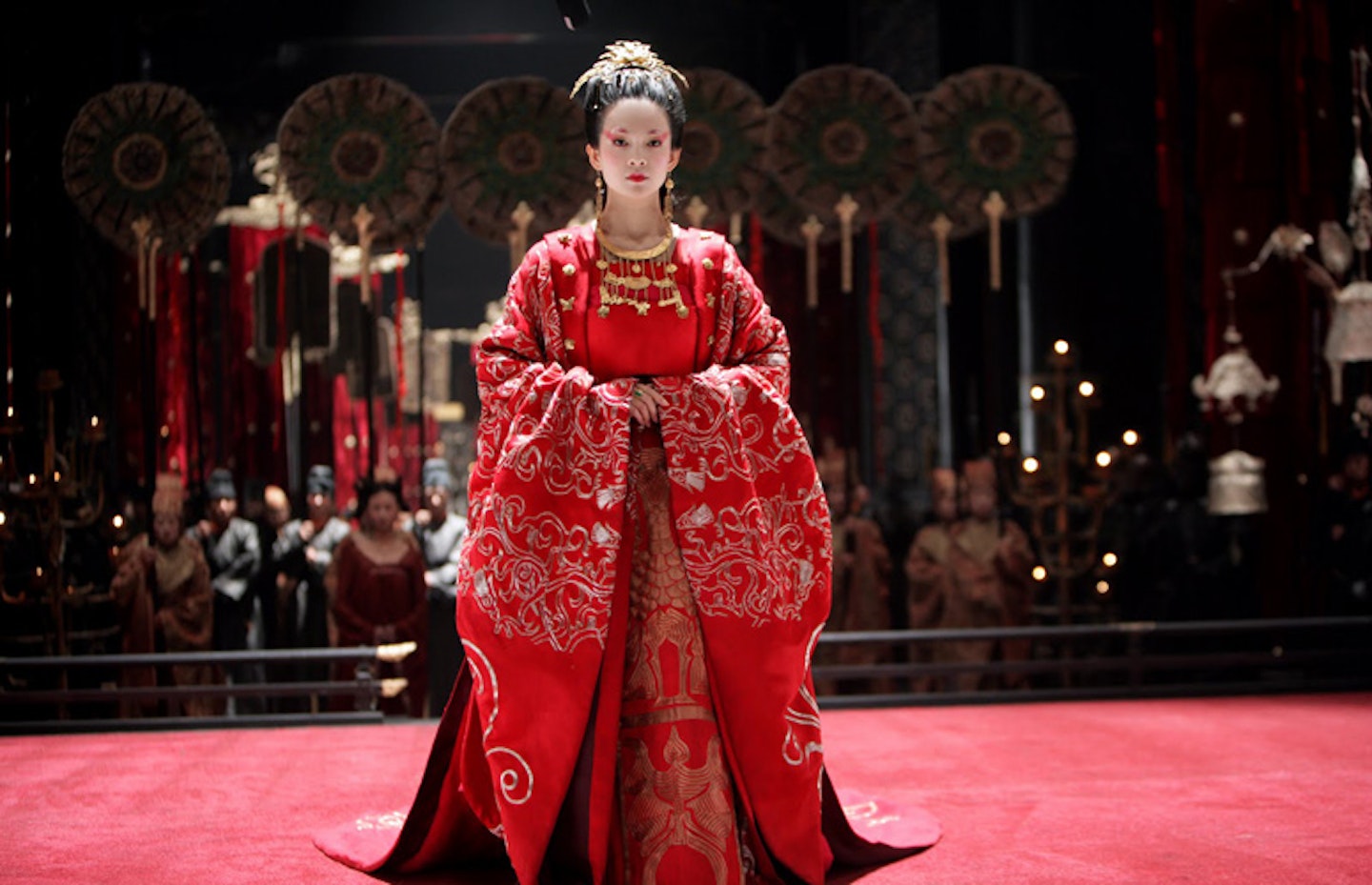
‘‘I think that there’s a distance between Spielberg and myself. I’m not there yet” the director says of comparisons with the Hollywood great. “From a hierarchical sense maybe” he expands, “Spielberg is regarded as a very commercial director, who later in his career started to make some very serious films, including Schindler’s List and Saving Private Ryan, and also others.” Feng’s early work such as The Dream Factory and Da Wan were big hits in China and enabled him to tackle more intense subject matters like war and natural disasters (read Assembly and Aftershock), an evolution not dissimilar from Spielberg. Stylistic comparisons between the directors are also easy to see, particularly in Back To 1942 and Assembly where flying bullets and scenes of mass bombings echo the grand scope and drama seen in Saving Private Ryan
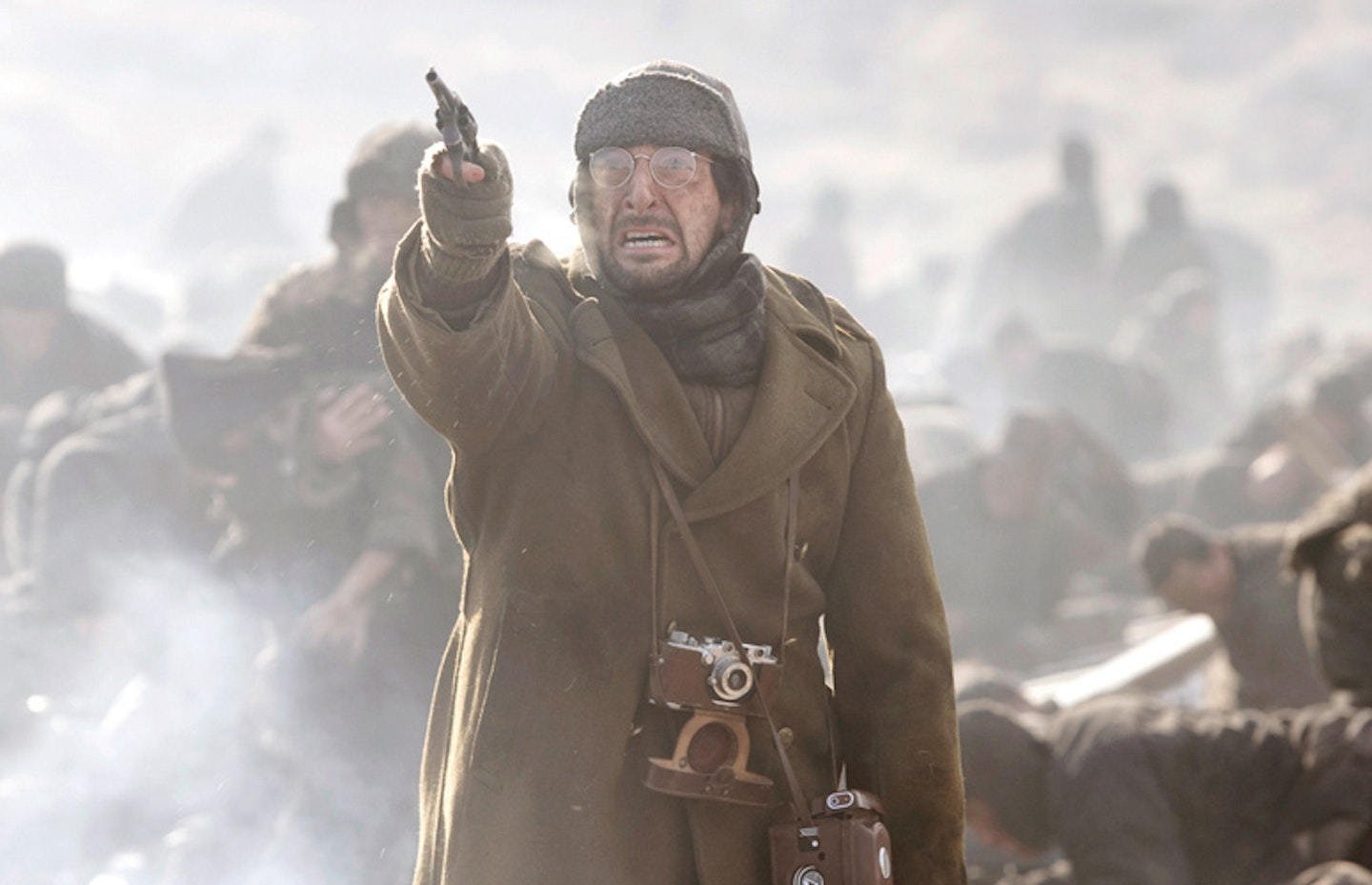
The faces in Feng’s company of actors may not be very recognisable to Western audiences but don’t mistake that for lack of pulling power. For one of his most successful films – Back To 1942 – Feng piqued the interest of Oscar winning actors Adrien Brody and Tim Robbins. ‘Western actors spend more time in character study and script study”, he enthuses “so they’re more prepared for the role. They pretty much just come alone with a simple backpack, report to the crew and start working. A lot of Chinese actors and actresses are late to work and bring an entourage of six or eight people to serve them! Western actors are far more professional.” Having also worked with Donald Sutherland, and coming within a hair of bagging Marlon Brando for the lead role in ‘The Funeral of the Famous Star’, Feng is no stranger to Western actors. No prizes for guessing who’s on his most wanted list - “Jennifer Lawrence, Benedict Cumberbatch, and also the other British actor - Tom Hiddleston.”
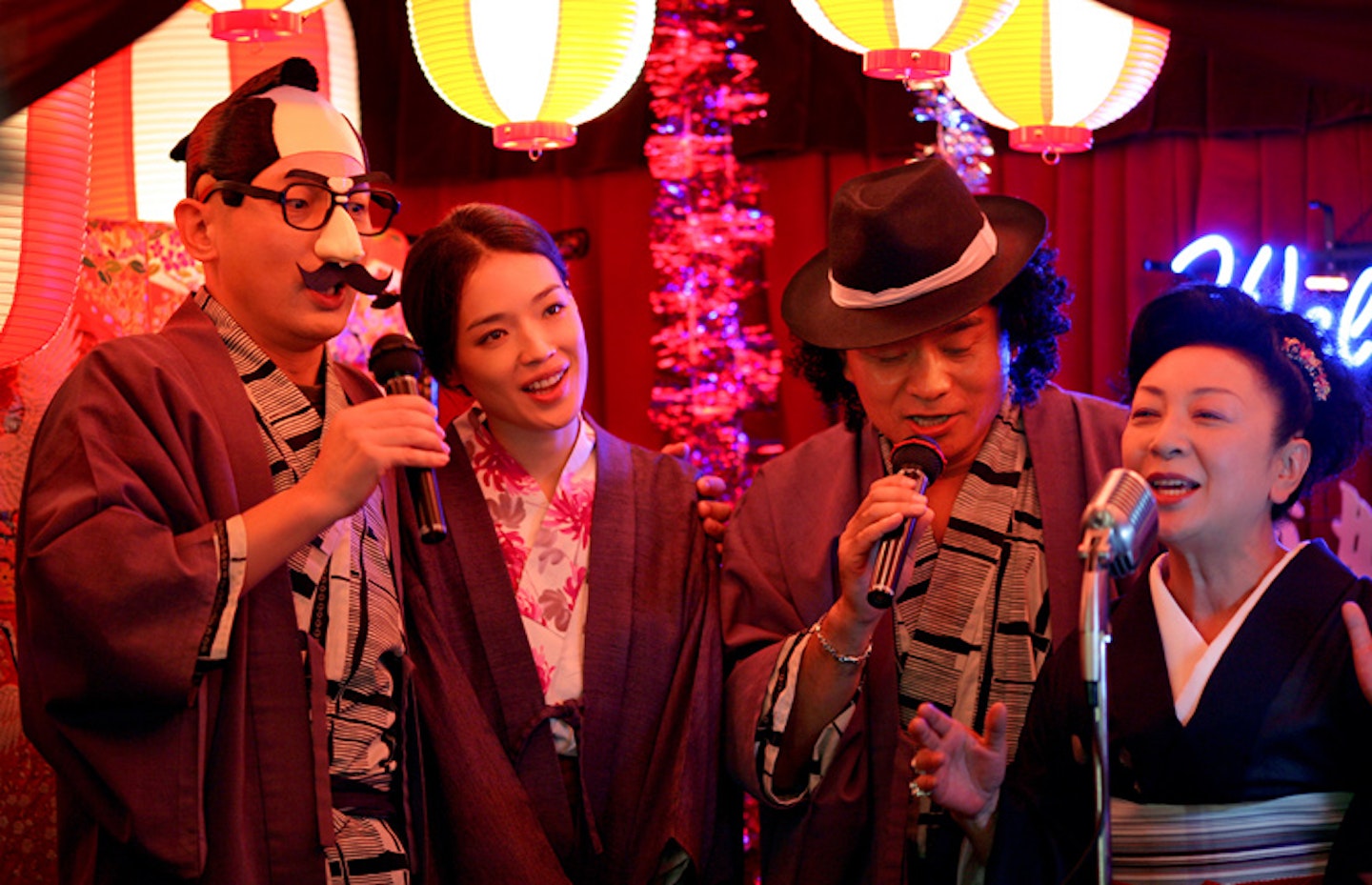
Whatever your favoured genre, Feng’s got a blockbuster to cover it. Whether it’s a black comedy (If You Are The One), action (a World Without Thieves) or wuxia (The Banquet), Feng’s been there and made that. Superheroes are about the only thing he hasn’t yet dabbled in. When Empire asked him whether those were waters he’d like to test he didn’t rule it out, but admitted it’s not something he’s driven to: ‘The superhero franchise films are very audience friendly as you don’t really have to use your brain. Right now I’m focusing on films that touch my heart and trigger some thinking. The most important part of a director’s job is storytelling and that doesn’t play a huge part in superhero productions. If I have to sit behind the monitor and watch a bunch of good actors and actresses running in front of a huge green screen, to me that’s misery.’ Feng’s work has already attracted the attention of filmmakers beyond China’s borders, with his post quake drama Aftershock the first film outside of the US to be shot in IMAX. Producers have faith in his blockbuster credentials and with US studios vying for partnership with China over the production of a Terracotta Army superhero movie, Feng could yet be the man for the job.
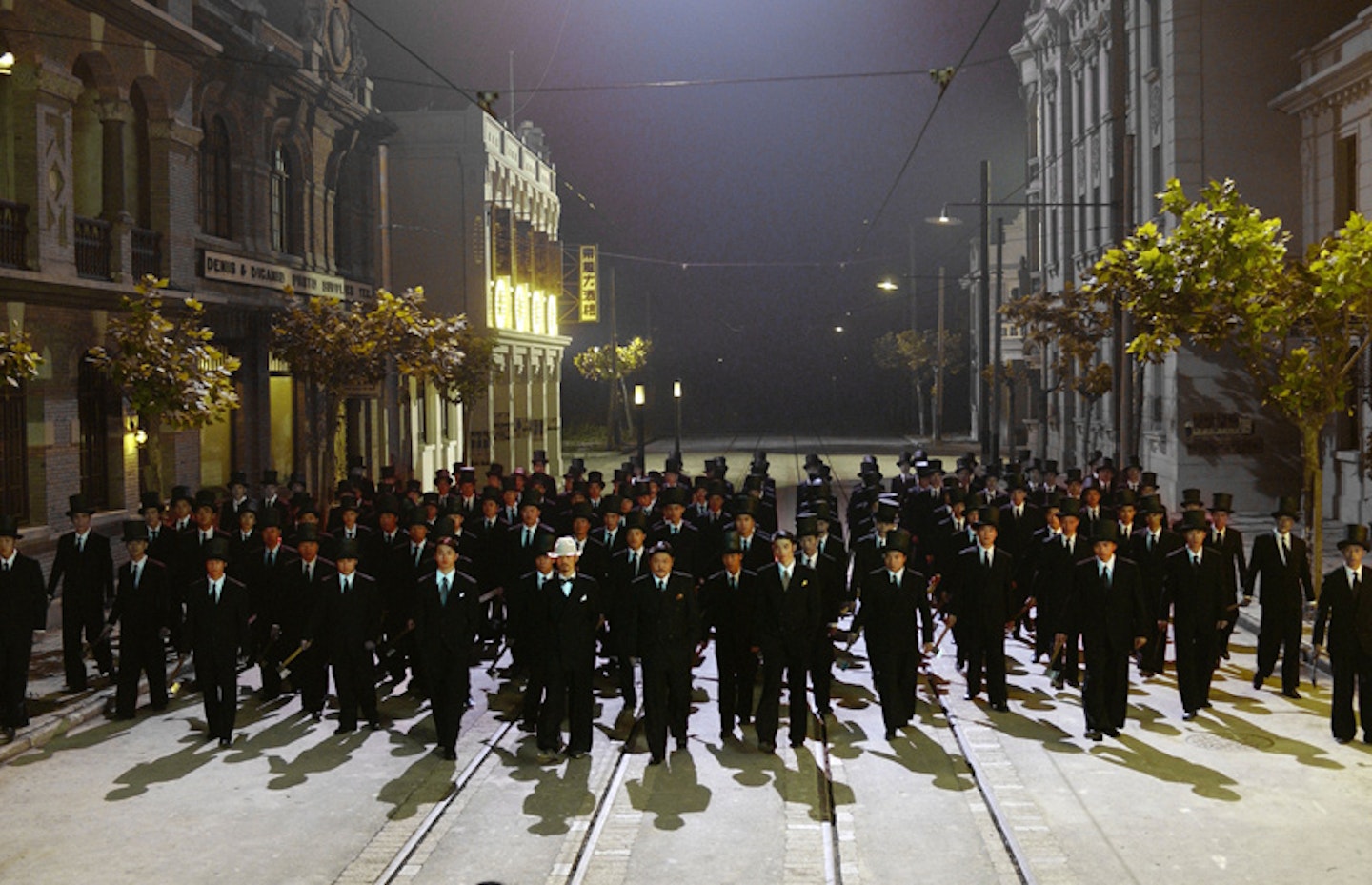
There are a lot of bizarre film roles in this world but it’s hard not to pay attention to a guy that has ‘Crocodile Gang Boss’ on his CV. Feng took the part in Stephen Chow’s comedy Kung Fu Hustle as a favour to his director friend on the promise that it be returned in kind. Feng’s on screen turn in one of the country’s most popular film exports highlights another side to his persona. As well as directing and acting, Feng pens scripts and produces films in his spare time. If that, or his gun-toting talents in Kung Fu Hustle fail to sway you, you can’t deny that having Stephen Chow indebted to you is pretty impressive.
The BFI’s_A Century Of Chinese Cinema_* starts in June.*
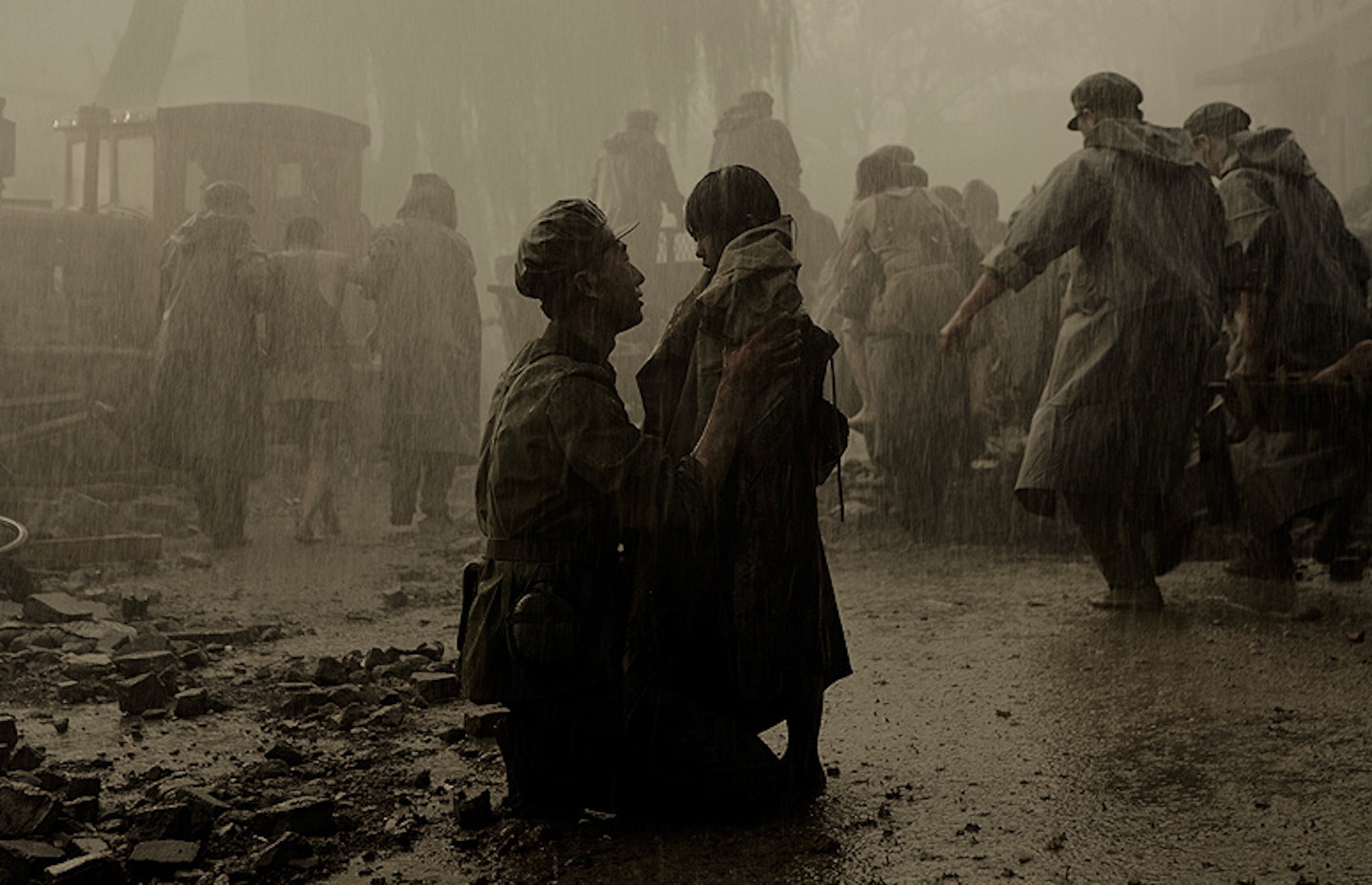
Chinese critics often don’t know what to make of Feng’s films - but he couldn’t care less. The director’s latest release, Personal Tailor (a sequel to The Dream Factory and starring long time acting partner Ge You), received a dismal response from Chinese critics but stormed to success at the box office, breaking the record for first week takings in the country. But even when he’s taking the industry by storm Feng remains a modest man: ‘I heard the box office reports but I didn’t care. The reason why I did Personal Tailor was because the brothers (the Huayi Brothers who have been producing Feng’s films for over ten years) had supported me so much with Back to 1942, which, commercially, they lost money on. I wanted to make a film that was low-risk, high-reward, for them to get (their money) back.’ With Feng, filmmaking isn’t about revenue but content. He’s likened blockbusters to a cold coke: it feels great when you watch it but then it’s gone, whereas his films aim to be more like vodka: provide a lasting effect. The director shies away from films that ‘after you watch it you leave the theatre as the same person that went in before. I want to make films that will actually make you think, maybe not even in a very comfortable way.’